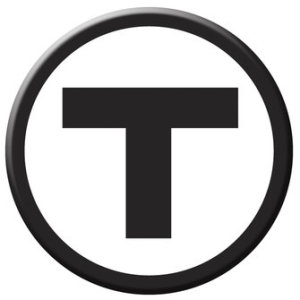MBTA says it can’t reconcile fare data, cash deposits. GM Shortsleeve pushes for privatization.
 Via Commonwealth Magazine
Via Commonwealth Magazine
MBTA OFFICIALS ACKNOWLEDGED on Monday that they still can’t reconcile what their fare machines are telling them is being collected and the money actually being deposited in the bank, a problem that first surfaced five years ago in a state audit. The officials said they want to outsource to a private company the operation of the T’s money room to get a handle on the problem and reduce costs.
While T officials said there’s no indication any fare money has been stolen, they don’t know for sure. The officials said there are discrepancies between the data provided by the MBTA’s 1,500 fare boxes on buses and trolleys and the more than 300 fare vending machines in stations and the bank slips the transit authority receives when it deposits the cash in the bank. Five years ago, the state audit indicated the discrepancies amounted to $20 million a year, or $100 million over five years.
Nick Easley, the authority’s director of flexible contracting, offered data indicating that nearly half the fare boxes the T tested recently reported cash totals that were inaccurate. He said nearly a quarter of the wireless information transferred between fare boxes and the T are unsuccessful.
While Easley did not put a dollar amount on the cash discrepancies, he harkened back to the 2011 audit in his presentation. “On [fare] boxes, we believe those variances could be a lot larger,” he told members of the Fiscal Management and Control Board. “This is not an equipment failure; it’s an entire system failure.”
Easley said the T surveyed other transportation officials around the country and did not find any that had similar problems. “Other transit agencies reconciled to the penny,” he said.
Easley said the T could save at least $8 million in costs by privatizing fare collection and by shifting the risk for any discrepancies over to the private operator. In addition, he said, the time between collecting cash and depositing it in the bank could be reduced; deposits currently take as long as five days.
The T says it collects $119 million in cash fares annually and the money room is contracted to count another $23 million in coins and cash from parking meters in Boston and Cambridge as well as cash tolls collected by the Department of Transportation. Officials say there has been no discrepancies uncovered in amounts collected from those other entities, just the T.
Brian Lang, the union representative on the Fiscal Management and Control Board, said “there doesn’t sound like there’s human error, or worse, theft,” and wondered if the MBTA’s planned upgrade to an automated fare collection system sometime in 2018 would solve many of the problems.
Brian Shortsleeve, the T’s chief administrator, said the agency cannot wait that long. “This is one of those areas where we do not have expertise,” he said. “This is an ongoing problem that needs to be rectified immediately.”
Missing revenue is a touchy subject for the MBTA after recent reports that several T parking lots operated by the private management company LAZ Parking were short on cash receipts. While officials did not broach it in the presentation Monday, James O’Brien, president of the Carmen’s Union, which also represents money room employees, reminded the Control Board members that it was a private company that lost cash.
“Safety and security is threatened when control is handed over to a private company that lacks the level of oversight we have now,” O’Brien said in public testimony prior to the board’s discussion. “Remember a few years ago the rogue employee of a privatizer who created fake T passes and sold them on Craigslist? How about the fraud recently uncovered at local MBTA parking lots, also under the management of a private company?”
Several counting room employees joined O’Brien in urging the board not to shut down the in-house counting house.
“For the life of me, I can’t understand why this board would want an outside company counting our money,” said Patrick Coughlan, of Weymouth, a 20-year T employee, the last four in the money room. “You’ll be bringing in workers making a lower wage, with much less dedication to the company.” Board members opted not to take any action on the proposal.
This entry was posted in
Featured Posts. Bookmark the
permalink.


